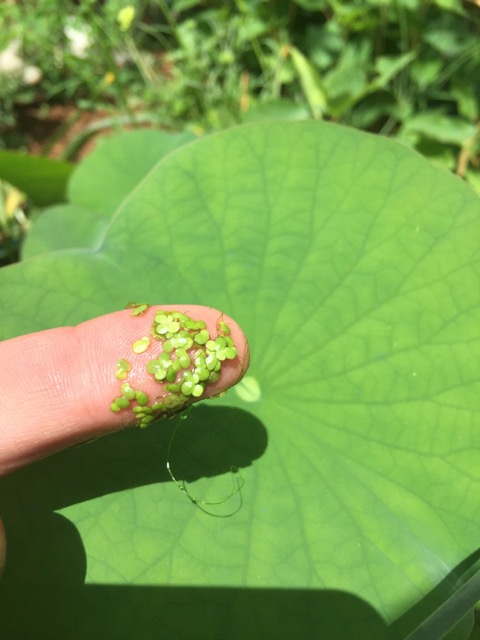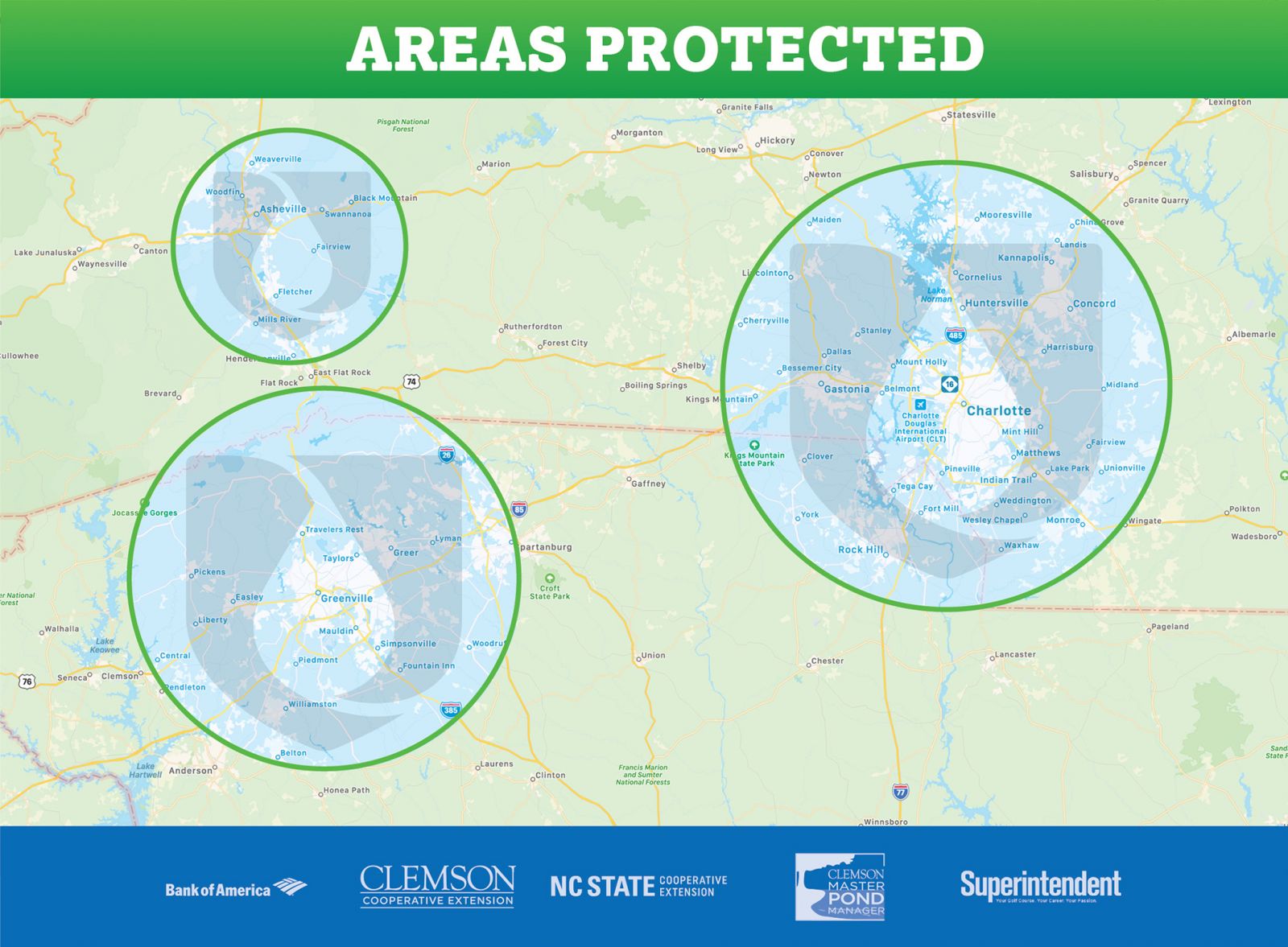
Johnny is a frustrated homeowner in an HOA who lives on the stormwater pond.
The neighborhood pond was overtaken by duckweed, and the neighbors wanted it to be beautiful again.
Johnny ran to the farm store and tried to buy a bottle to treat the pond. But nothing he bought seemed to work…
What is Duckweed?
Common duckweed (also known as lesser duckweed or small duckweed) is a small, free-floating plant. It’s scientific name is Lemna minor L. and it’s in the Lemnaceae family.
You can find it formed in dense colonies that are undisturbed and quiet. Duckweed is one of the most prolific aquatic plants in North & South Carolina.
What does Duckweed look like?
Small, green, flat, and free-floating are all used to describe common duckweed. The leaves are oval or rounded and are about 1/10th to 1/8th inches wide.
The plant is flat and has a single root on each frond. They form a thick mat on the water and are usually intertwined with some other plants such as water meal and Azolla (another type of duckweed).

How fast does Duckweed grow?
Duckweed grows pretty quickly and can consume a pond or lake in a matter of weeks. It can withstand and thrive in hot and cold temperatures.
It’s known to withstand temperatures as low as 7 degrees Celsius and still function normally. However, when the temperature drops below freezing, the duckweed will go dormant until warmer weather conditions return.
How do I kill Duckweed?
With the “over the counter” herbicides, it can be nearly impossible to kill duckweed.
If your pond or lake is in any way connected to a stream, creek, or owned by an HOA (home owners association), it is required by law to consult with a professional with an aquatic herbicide applicator license.
It’s not recommended, but it is legal for a pond owner to treat their isolated private pond. It usually is not successful without the proper equipment. Treated correctly duckweed can be gone in less than ten days!
Now serving Greenville SC, Spartanburg SC, Asheville NC, & Charlotte NC areas.
Get started. Become a member today!


